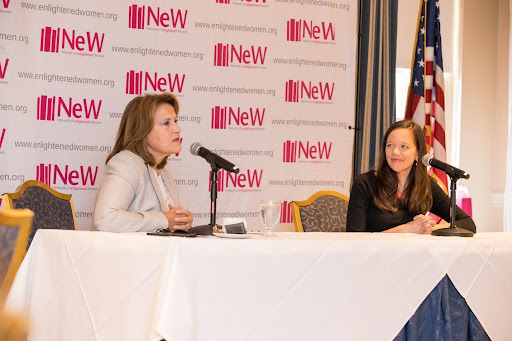The Network of enlightened Women hosted our first-ever Capitol Hill Intern Summit on Sept. 17 at the Capitol Hill Club in Washington, DC. We were honored to have Anita McBride — executive-in-residence in the School of Public Affairs at American University, former chief of staff to first lady Laura Bush, and member of the U. (bolingbrookmasjid.com) S.-Afghan Women’s Council — speak to 50 DC interns about the recent events in Afghanistan, specifically the future for Afghan women now under Taliban control.
Karin Lips, founder and president of NeW, asked McBride what life is like for girls and women in Afghanistan in January compared to what they are facing now. Her answer: “Frightening and heartbreaking.”

McBride used many powerful examples to describe the brutal treatment the women of Afghanistan had to suffer by the horrific regime of the Taliban only 20 years ago. The simple act of wearing nail polish would cause their fingernails to be ripped off by the Taliban. Women were not allowed to be educated and were forbidden from holding a job outside of the home.
If they were war widows, which was unfortunately common after many decades of war, they were still not permitted to work outside the home. Afghan women could not get medical care unless they were accompanied by a male member of their family. In 2001, Afghanistan was considered to be one of the worst places in the world to be a woman.
Thanks to the support of the United States and other countries around the world, there has been incredible progress for the women of Afghanistan in the last two decades. They went from having zero women in schools to millions. Women were finally able to support themselves, resulting in an explosion of economic empowerment.
For the first time in Afghan history, women went on to become lawyers, judges, medical doctors, entrepreneurs, architects, and business owners. Some women enlisted in the Afghan national army and were also trained as police officers. Women were finally fulfilling their role in civil society in every sector and every aspect possible. They were rebuilding their nation. Freedom was no longer a long shot; it had become a reality and a way of life.
Unfortunately, the total takeover of Afghanistan by the Taliban in the last eight weeks has had devastating effects. Terror has surrounded the evacuation of Afghan and American citizens still trapped in Afghanistan.
McBride also pointed out the heartbreak and anger that must surround our U.S. military veterans who served in Afghanistan. Our war heroes were a force for good in Afghanistan, fighting for freedom, our security, and to improve the lives of others. This, McBride explained, is “the most noble cause that you can possibly imagine to be able to do as an American.”
To add to the pain of the current situation, McBride explained that since the U.S. withdrew from the country, the first ministry to be closed by the Taliban was the Ministry of Women’s Affairs. Just last week, the new Taliban-appointed Kabul University Chancellor “temporarily” barred women from teaching or attending classes until new procedures could be put in place, including segregated gender classrooms. Yet another blow to women’s rights, and sadly, it’s likely only the beginning.
However, despite the horrors taking place in Afghanistan, McBride shared that the U.S.-Afghan Women’s Council will never give up on finding ways to continue supporting and promoting women’s rights in Afghanistan. Over the last 20 years, the council has focused on promoting four major areas: education, medical care/health care, economic empowerment, and women’s leadership. It have no plans of slowing down the fight to help ensure freedom for Afghan women.
McBride said the movement is only possible because of the fight in Afghan women, stating that the “women of Afghanistan are the most resilient in the world.” The new generation of women, who are now in their 20s, don’t know anything else other than the taste of freedom and the promise of opportunity.
“They would rather die fighting than go back to living with no rights,” McBride said.
As Americans, we cannot imagine being faced with a choice like that today. In Afghanistan, this is a harsh reality.
Thank you, Anita McBride, for shedding light on the horrors taking place in Afghanistan and for fervently fighting for the rights of all women each day.
This blog post was written by Madison Kutruff, NeW Campus Program Coordinator.
